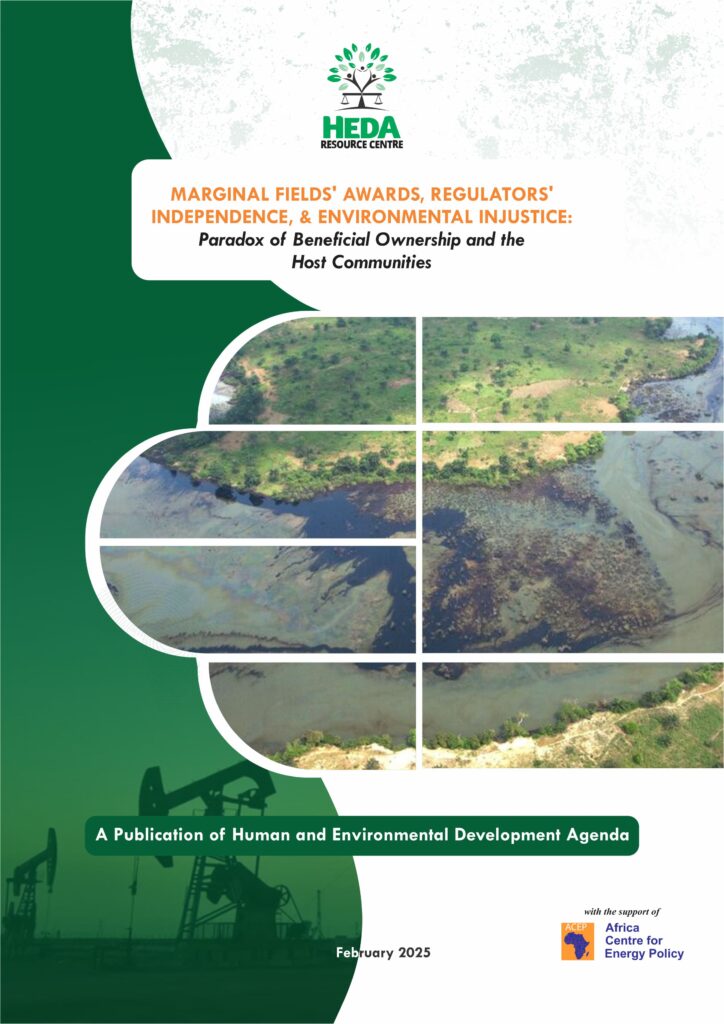
Following the release of the full judgment in the criminal trial of Eni, Shell and others for international corruption related to the acquisition of the OPL 245 oil field in Nigeria by the Milan Tribunal where defendants were all acquitted in March 2021 as the tribunal ruled that they had no case to answer, international anticorruption groups led by Global Witness, HEDA, Re:Common and Corner House have asked the Nigerian Government to appeal the against the judgement which, if allowed to stand, creates a terrible precedent for the global fight against corruption and the ability to hold fossil fuel companies to account.
The judges ruled that even “proof of the unlawful payment or the unlawfulness of the act are not considered sufficient, even jointly, to constitute proof of the offence of domestic or international bribery”. The judges found that “demonstration of the agreement between the parties” on corruption was required. In the judges’ view, no evidence of such an express agreement was found.
Commenting on the judgment, a spokesperson for campaign groups Global Witness, HEDA, Re:Common and Corner House said:
“The judgment lays bare the stinking carcass of the OPL 245 deal. Many will be mystified by the conclusions drawn by the judges. The bar they have set for a conviction for international corruption is impossibly high – presenting companies with a “get out of jail free” card. We urge the public prosecutor to appeal this judgment, which, if allowed to stand, creates a terrible precedent for the global fight against corruption and the ability to hold fossil fuel companies to account.”
In their full judgment, the judges expressed concerns about the movement of nearly half a billion dollars into cash from the deal, stating “that the amount of untraceable money, moved in the manner described is circumstantial proof of the generically illicit nature of the payments derived from the from the proceeds of OPL 245, it is not, however, possible to agree with the conclusive assumption that a large part of that sum cash – if not all of it – ended up in the hands of the Nigerian public officials who made possible the illicit agreements on OPL 245.”
The judges found that the money from the OPL 245 deal went to Dan Etete, a former oil minister who while in office awarded the block to Malabu, a company he controlled.
The judges also ruled that Nigeria’s Attorney General Mohammed Adoke did receive money from the OPL 245 deal. However, the judges found that the money may have represented payment of a prior debt owed by Etete and that there was no evidence of a corrupt agreement. Adoke has denied wrongdoing and says the payment was as part of a property transaction with Abubakar Aliyu who has also denied wrongdoing, neither were defendants in the Milan trial.
The groups said they would be examining the judgement closely to see how it aligns with international anti-corruption standards.
The expiry date for Shell and Eni’s license to explore the OPL 245 block has now passed. No approval has been authorised by the Nigerian government for the block to be developed.



